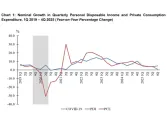
Asia’s finance leaders put transformations on hold due to cost challenges
Cost allocation remains a key focus for finance leaders in 2024.
Finance leaders across Asia have put their finance transformation on hold amidst management and funding changes.
In a survey of over 90 finance leaders in Asia– covering Hong Kong, Malaysia, the Philippines, Singapore, Thailand, and Vietnam– just a third of respondents or 31% said that they are in the process of finance transformation, EY found.
The top challenges cited include a change in management (39%), finding the right implementation partner (26%) and creating a business case to obtain funding (25%).
The survey also found that priorities have shifted. Whilst revenue growth continued to be a priority, finance leaders in 2024 seek business agility and driving long-term value. Prior to the pandemic, the leaders cited cost efficiencies and enterprise and regulatory risk as key priorities.
Cost allocation remains a focus area for finance leaders, with 55% indicating this.
“Effective cost allocation provides transparency into the true costs associated with various business activities, allowing finance leaders to identify areas where profitability can be improved,” said Ronald Wong, EY Asean Financial Accounting and Advisory Services Leader.
“An efficient and effective cost allocation methodology balances cost and accuracy. Thus, finance leaders need to enhance the sophistication and maturity of their cost allocation framework to ensure that they meet the necessary requirements while generating results that users can trust and rely on,” Wong said.
Four challenges
Finance leaders must overcome four challenges to successfully manage their cost allocations: process, data, technology, and people.
Whilst over 1 in 2 (55%) of surveyed organizations already use operations-based cost allocation processes, there still remains concerns in regard to integration. Almost half (49%) of the respondents said that they struggle with data available.
More than half of respondents also cited the lack of clear information – specifically visibility (35%) and traceability (30%) – of the cost incurred as a challenge.
Half of respondents (50%) still rely on spreadsheets, and 70% rated their current cost allocation process as manual and tedious with numerous errors.
For people-related challenges, a key issue faced by the surveyed is the reluctance among employees to share data or information needed for cost allocation, EY found.
Nearly 1 in 3 (31%) of respondents revealed that getting the required data was a significant barrier.
Finance leaders should familiarize themselves with emerging technologies in order to improve outcomes, Wong said.
“Additionally, having access to the right skills and a strong digital culture should not be overlooked. Finance leaders should consider integrating advanced technologies with cognitive abilities, emotional intelligence and interpersonal skills of their talent to enable the success of their cost allocation and finance transformation,” he added.

















 Advertise
Advertise












